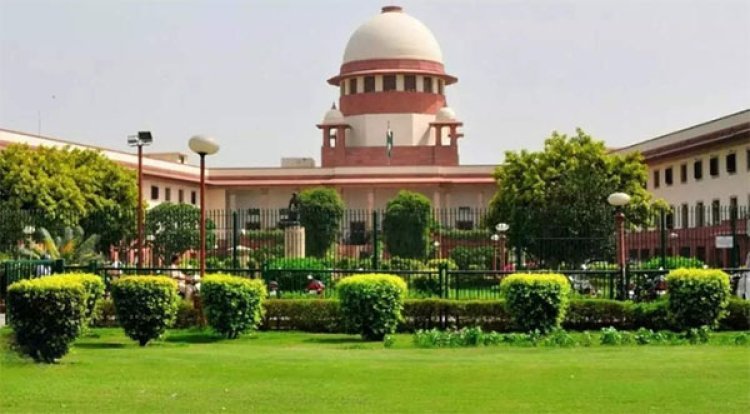Jamiat application hearing in Supreme Court on places of worship act 1991
Supreme Court stops registration of New Suits against Places of Worship, bars passing of Final/Survey Orders in Pending Suits. Jamiat president we want effective implementation of the Act for safeguard of unity of the country.

New Delhi : Jamiat Ulama-i-Hind president Maulana Mahmood Madani who is also petitioner, while reacting to the Supreme Court interim order with regard to worship Act 1991, said that our goal is to safeguard peace and unity in this country. Instead of focusing on past grievances, we must concentrate on building a shared future where all communities have equal participation in the progress of the nation," He further remarked, "Those who obsess over finding temples behind mosques are enemies of the unity and integrity of our country. Jamiat Ulama-i-Hind has always opposed communalism and consistently urged those in power to close the doors through which the serpent of communalism sneaks in. It was through the relentless efforts of Jamiat Ulama-i-Hind that the 1991 Act was enacted, and, we will ensure its effective implementation."
Today's hearing
New Delhi, December 12: While hearing Petition No. 1246 of 2020 filed by Jamiat Ulama-i-Hind President Maulana Mahmood Madani, the Supreme Court issued an interim order barring all courts across the country from registering new cases against any place of worship (mosque, temple, or dargah) until further orders. The court further ruled that, in pending cases — including Gyanvapi Masjid, Mathura Shahi Eidgah, and Sambhal Jama Masjid — no court shall issue survey orders or pass interim directives that alter the character of any place of worship.
A special bench comprising Chief Justice of India Sanjiv Khanna, Justice Sanjay Kumar, and Justice K.V. Vishwanathan issued this order while hearing batches of petitions challenging the constitutionality of the Places of Worship (Special Provisions) Act, 1991. The Act aims to maintain the religious character of places of worship as they stood on August 15, 1947, and prohibits any alteration to this status.
Senior Advocate Dushyant Dave and Advocate-on-Record Mansoor Ali Khan represented Jamiat Ulama-i-Hind. During the hearing, Advocate Dushyant Dave requested the court to stop hearing of all pending cases against places of worship. It was brought to the court's attention that 18 cases were currently pending against 10 mosques and dargahs across the country. However, the court refused to stay the hearings of these already pending cases.
The Supreme Court directed the Union government to file its response within four weeks on the petitions challenging the 1991 Act. The court further ordered that the Centre's counter-affidavit be uploaded on a designated website to allow public access and enable anyone to download it.
The case has its roots in a 2020 petition titled Ashwini Kumar Upadhyay vs. Union of India, in which the Supreme Court issued a notice to the Union government in March 2021. Following this, other petitions challenging the constitutionality of the 1991 Act were also filed. During today's hearing, Jamiat Ulama-i-Hind submitted its own writ petition demanding the full implementation of the Act.
Several political parties and prominent figures, including the CPI(M), Indian Union Muslim League, DMK, RJD MP Manoj Jha, and NCP (Sharad Pawar) MP Jitendra Awhad, filed intervention applications in support of the Act. Despite several deadline extensions from the court, the Union government has yet to submit its response.
Public attention on the Places of Worship Act intensified following incidents of police violence linked to a survey at Sambhal Jama Masjid in Uttar Pradesh. The incident sparked heated public debates, prompting the Supreme Court to issue stern instructions regarding the protection of places of worship.

















